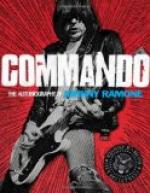We have had to suffer—to suffer cruelly for our sins. Our enemy forced his way through the dyke that surrounded us, and like a stormy sea he ruined our homes, devastated our fields, and caused us endless suffering. Besides this, the talk of intervention had an enervating effecton the commandos. In our commando, which was largely composed of ignorant men, the strangest stories went round. One was that the Russians had landed somewhere in South Africa with 100 cannon. There was always talk of a great European War having broken out; and the consequence was that the Boers counted on intervention or help from the Powers, instead of depending on their own strength and perseverance. The most sensible among us recognised the improbability of intervention. It was not to the interest of any foreign Power to intervene in South Africa where it had no firm footing, particularly as Chamberlain had, by most cunning artifices, forced us to be the aggressors.
War was inevitable. Sooner or later it had to come. After the Jameson Raid, which was really the beginning of the war, the Transvaal Government recognised the dangerous position in which it stood, as an isolated Republic, and was therefore obliged to arm itself with the most modern of military equipments. Before the Jameson Raid race hatred was dying out rapidly. The consequence of the raid was that the gap between Boer and Englishman widened, the sympathy of the Uitlanders for us grew deeper, and the Afrikander Bond grew stronger. England’s prestige in South Africa was threatened, and with it her rank as first Power in the world. She had to maintain her supremacy in South Africa; while for us it had become a question of all or nothing. England has evidently succeeded in keeping up such friendly relations with the other Powers that no intervention seems possible.
The relief of Ladysmith took place on February 28—a Majuba Day—a day that had been marked as a red-letter day in our calendars. For nineteen years the enemy have longed to wipe out the remembrance of that day, and they have done so brilliantly and malignantly. Since that time we have been humiliated and belittled. Our fall was great. For the first time there was a general panic. The two Republics, being forced to venture on war against a powerful kingdom, felt themselves staggering under the heavy blow.
IV
DEWETSDRIFT—RETURN TO, AND FLIGHT FROM, PRETORIA
After the relief of Kimberley and Ladysmith we imagined that the decisive battles would soon follow. Although my knee was not yet cured, I went to Glencoe, whither our commandos had retreated. I was not five days there when I had to leave, being unfit for active service. Again I went to Warmbad for some weeks with Mr. Burgemeester Potgieter and his family, and on my return to Pretoria remained in my office until the beginning of May.
Meanwhile Frits had returned from the Free State, and my knee was cured. We each bought ourselves a sturdy pony, and left, with some other burghers, by train for Klerksdorp, from where we went on to Dewetsdrift, on the Vaal River. General Viljoen was guarding the drift there with some hundreds of burghers. We rode from there some four or five hours into the Free State to spy the movements of the enemy.




